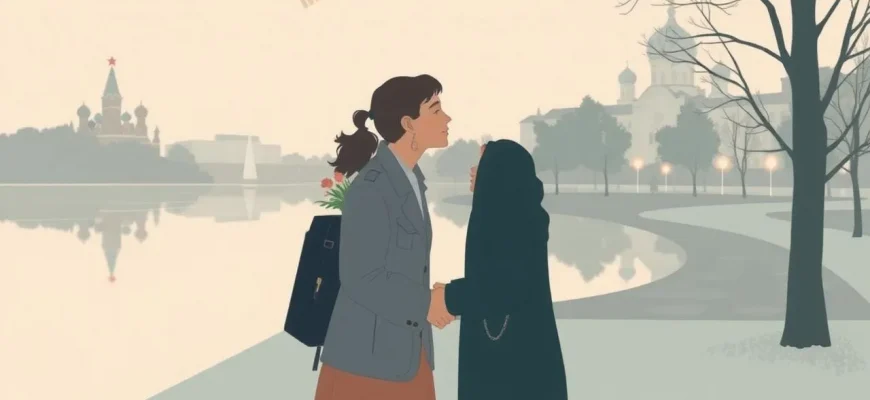Soviet cinema has always had a special way of capturing the essence of first love, often with a blend of innocence, idealism, and a touch of melancholy. These films not only reflect the cultural and social nuances of their time but also resonate with universal themes of love and coming of age. Here's a curated list of 10 Soviet films that beautifully portray the tender moments of first love, each with its own unique narrative and charm.

The Irony of Fate (1975)
Description: This classic New Year's Eve comedy tells the story of a man who, after a night of drinking, ends up in the wrong city and meets the love of his life. It's a whimsical tale of mistaken identity and serendipitous love.
Fact: The film was so popular that it became a tradition in Russia to watch it every New Year's Eve. It was also the first Soviet film to be shown on American television.
 30 Days Free
30 Days Free 
Moscow Does Not Believe in Tears (1980)
Description: This poignant drama follows three women over three decades, focusing on their personal growth and the unexpected twists in their romantic lives. It's a heartfelt exploration of love, resilience, and the passage of time.
Fact: The film won the Academy Award for Best Foreign Language Film in 1981, making it one of the most recognized Soviet films internationally.
 30 Days Free
30 Days Free 
The Girls (1961)
Description: Set in a remote Siberian logging camp, this comedy-drama explores the life of a young woman who finds love in the most unexpected place, highlighting the simplicity and purity of first love.
Fact: The film was one of the first Soviet comedies to focus on the lives of ordinary people, breaking away from the usual heroic narratives.
 30 Days Free
30 Days Free 
A Cruel Romance (1984)
Description: Based on Alexander Ostrovsky's play, this film delves into the complexities of love, social status, and betrayal, with a central theme of first love that is both passionate and tragic.
Fact: The film's score, composed by Andrei Petrov, became extremely popular, with songs from the movie often performed at concerts and events.
 30 Days Free
30 Days Free 
The Dawns Here Are Quiet (1972)
Description: While primarily a war film, it includes a subplot of first love between a soldier and a female anti-aircraft gunner, set against the backdrop of WWII, making it a poignant tale of love amidst tragedy.
Fact: The film was adapted from a novel by Boris Vasilyev, and its depiction of women in combat roles was groundbreaking for its time.
 30 Days Free
30 Days Free 
The Station Master (1972)
Description: This adaptation of Pushkin's story captures the fleeting nature of first love through the eyes of a young station master's daughter and a passing officer.
Fact: The film was part of a series of adaptations of Pushkin's works, showcasing the timeless nature of his stories.
 30 Days Free
30 Days Free 
The Unfinished Piece for the Player Piano (1977)
Description: Set in a Russian estate, this film explores the dynamics of love, jealousy, and the pursuit of happiness, with a subplot of first love that adds depth to the narrative.
Fact: The film was directed by Nikita Mikhalkov, who later became one of Russia's most celebrated filmmakers.
 30 Days Free
30 Days Free 
The Rumyantsev Case (1955)
Description: A light-hearted comedy about a young man who gets entangled in a series of misunderstandings, leading to his first romantic encounter, showcasing the innocence and humor of young love.
Fact: The film was one of the first Soviet comedies to be widely popular, reflecting the post-war optimism.
 30 Days Free
30 Days Free 
The House I Live In (1957)
Description: This film captures the lives of residents in a communal apartment, with a subplot of young love that adds warmth and hope to the narrative.
Fact: It was one of the first Soviet films to explore the theme of communal living, a common aspect of Soviet life.
 30 Days Free
30 Days Free 
The Story of Asya Klyachina (1966)
Description: A lyrical and poetic film about a woman's life in a small village, with her first love being a central theme, portrayed with a deep sense of melancholy and beauty.
Fact: The film was initially banned by Soviet censors due to its unconventional narrative style but was later released after the director's death.
 30 Days Free
30 Days Free 








